He is a citizen of the world who taught in France, Brazil and the United States of America, but it is the land where he lived until the age of 17 that left him «deepest marks». Joaquim Romero Magalhães received, this Wednesday, 12 December, the Doctorate Honoris Causa by the University of Algarve (UAlg), in a very emotional ceremony. In the speech, the teacher, who was born in Loulé, spoke of his Algarve, that region that still today, at the age of 76, «awakens his senses».
receive this Honoris Causa it was an "honor" that Joaquim Romero Magalhães accepted "joyfully, after an unrestrained emotion" that led him "to tears" when Paulo Águas, dean of UAlg, informed him of the decision.
Making a self-analysis of the reason for the decision, the retired professor at the University of Coimbra said that the distinction was due to two reasons: his quality as an academic in the Algarve and the work he dedicated to the history of the economic Algarve in his long career.
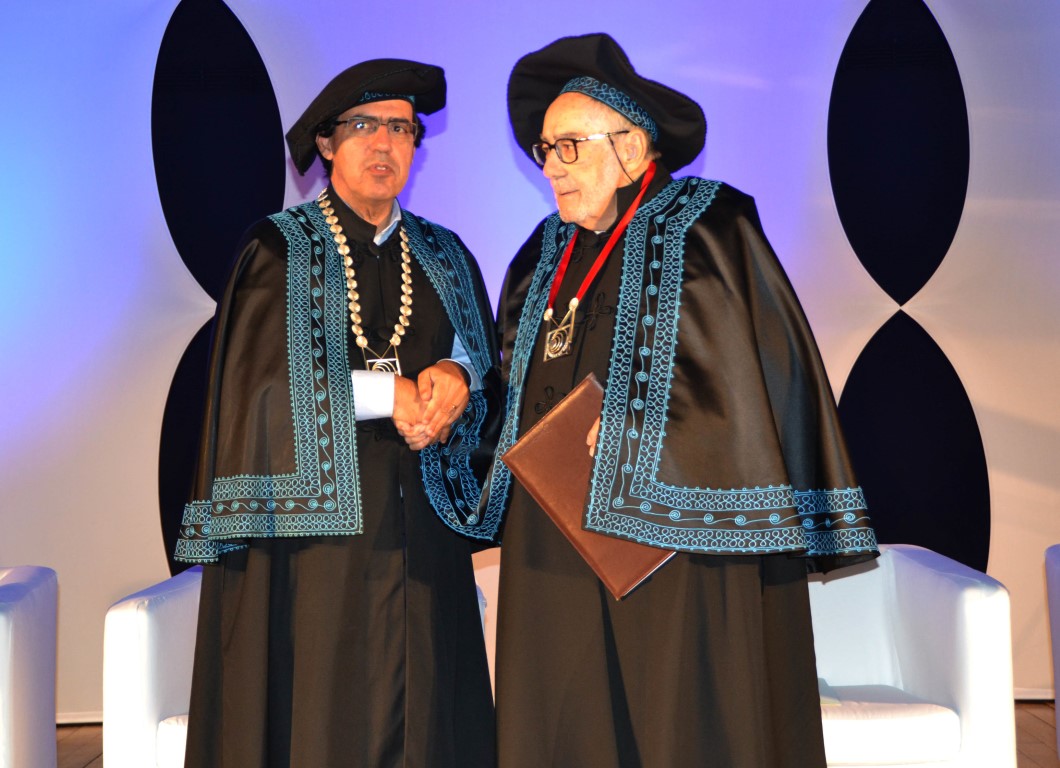
In fact, shortly before the ceremony, the UAlg Library had been the stage for the re-edition of the book “O Algarve Económico during the XNUMXth century”, by Romero de Magalhães.
Because, as I said, "I am from the Algarve by birth and by continued experience." “However, neither regionalist nor exclusivist. I have tried to install myself in a neutrality that allows me to be fair and evaluate, with balance, what I understand. Not everything in the Algarve is good, not everything that surrounds us in Portugal should be despised», he said, in front of an emotional audience.
But it was precisely to the region where he was born that Romero Magalhães dedicated a good part of his speech.
«Is the Algarve definable? Concentrated on half a dozen words, crystallized in so many concepts and diffused in no less prejudices? What metaphors should we collect? The Algarve is a story. A literature. A landscape. A luminous tone: it is a way of living and knowing how to live and it is a set of what, after all, surrounds and comforts us. And all that. What is seen and what is not seen. What is material and what hovers above that reality. It is a whole, it cannot be fragmented. It's something that still awakens my senses».
Recalling his friend António Rosa Mendes, historian who died in 2013 and patron of the UAlg Library, Romero Magalhães ended by quoting António Pereira, poet from Armação de Pêra: «I'm from the Algarve and my street has the sea in the background».
Maria Leonor Costa, professor at the Higher Institute of Economics and Management (ISEG), was the godmother by Joaquim Romero Magalhães at the ceremony and also did not hide the emotion of being able to witness the award of the doctorate Honoris Causa to the Algarvian academic.
«The act that takes place here today is one of those unique moments of an institution that wants to be inclusive and facing the world. The University co-opts for its gallery of doctors an emeritus figure, outside its framework, indisputably deserving of honorable treatment. The university's prestige is enriched by the eminence of the merit of the personality that it welcomes in its body of doctors», he said.
To Joaquim Romero Magalhães, the region owes an “irreplaceable attentive economic history”.
«As he showed in the thousands of pages he wrote on the subject, the Algarve effectively proves to be an economic space, separated from the Alentejo and the rest of the country by forces in part dictated by geography, being in 1700 more rural than in 1500. They are still for making similar historical-economic monographs on other regions of the country», he also said.
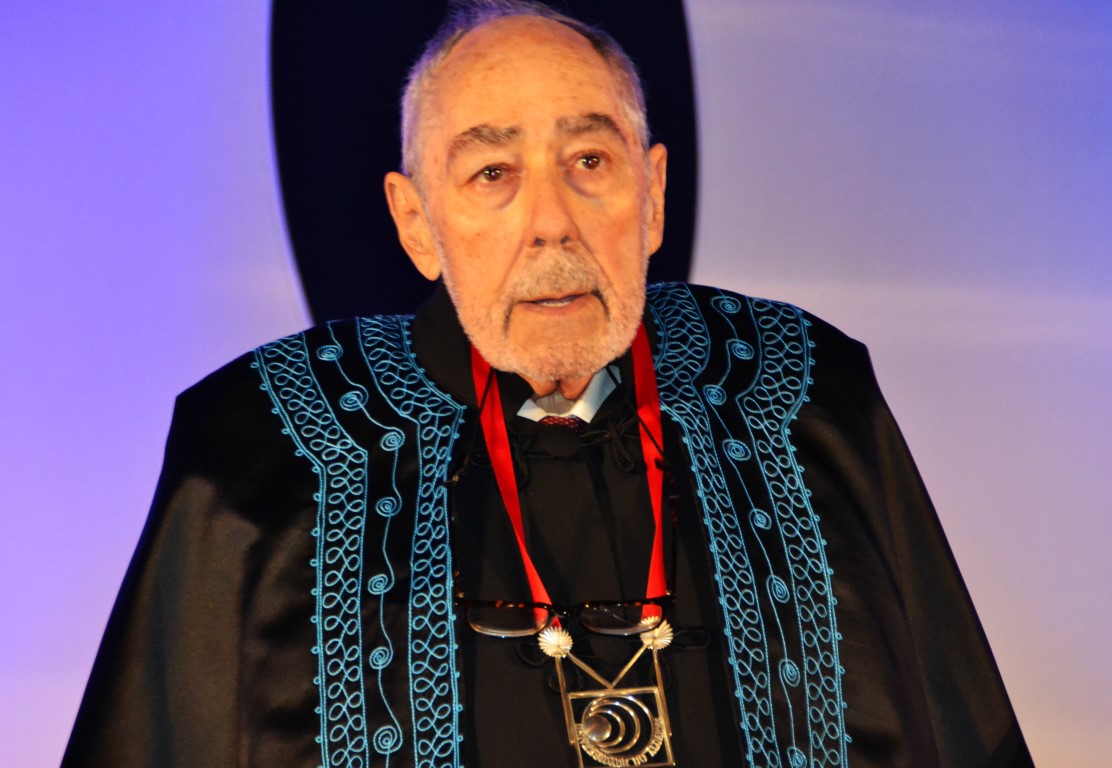
Paulo Águas, dean of UAlg, considered that, more than the moment of the celebration of the 39th anniversary of the University of Algarve, «this ceremony will be remembered as the day on which the academy recognized and distinguished the path of the unique figure that is Joaquim Romero Magalhães».
The opinion was shared by Vítor Neto, president of the UAlg General Council, who recalled the times when he was a colleague of Joaquim Romero Magalhães at the Liceu de Faro.
«We follow different paths, but not opposites. Life has determined it that way, but I believe I can say that we remain equal in values and social attitude», he said.
For Vítor Neto, the Algarve owes “a lot” to Joaquim Romero Magalhães. «The title given to him today is fully justified», he concluded.
Photos: Pedro Lemos | Sul Informação
Speech in full by Maria Leonor Costa:
«In praise of Joaquim Romero Magalhães
The act that takes place here today is one of those unique moments of an institution that wants to be inclusive and facing the world. The University co-opts for its gallery of doctors an emeritus figure, outside its framework, indisputably deserving of honorable treatment. The university's prestige is enriched by the eminence of the personality merit it welcomes in its body of doctors.
Whoever receives the doctoral insignia today is a native of Loulé. Dr. Joaquim Antero Romero Magalhães discovered early in his adolescence in Faro the sharp lenses with which he has observed the society in which we live, both today and yesterday, wounded by persistent inequalities. The Algarve owes it an irreplaceable economic history that is aware of these inequalities. But, surely, this ceremony, which everyone is delighted to witness and participate in, is not born out of coincidences with a regionalist bent. The vast temporal and thematic horizon of the work of Dr. Joaquim Romero Magalhães and the plurality of facets of his life as a citizen conform to the universalist nature of the academy that welcomes him.
Dr. Joaquim Romero Magalhães will figure among the scarce fifteen historians (domestic and foreign) extolled with a doctorate in honor by Portuguese public universities for practically a century. By joint proposal of the Faculties of Human and Social Sciences and Economics, the University of the Algarve, in this solemn ceremony, is due to the due display of the academic and civic value of this historian. History serves the present and in the present the answers to the challenges of change are prepared.
Change that we must understand, otherwise we lose meaning to the public choices we make as citizens. This is the social value of the profession of historian, as we see it in Joaquim Romero Magalhães. The University of Algarve thus opens, once again, the doors to the reflection that prepares Portugal for the future, dignifying, in turn, those who profile themselves in its gallery of doctors. I will try in this page – in an unnecessary effort after all, because the work and the individual would speak for themselves – I will try, he said, to assert that the citizen/historian Joaquim Romero Magalhães repays with the notoriety of his achievements the honor bestowed on him by the University of Algarve.
Dr. Joaquim Romero Magalhães combines a life of remarkable gifts to Portuguese society, as a public figure, with an outstanding place in Portuguese and foreign academia. He has a vast printed work, which is individualized in an analytically fruitful content, simultaneously didactic and literary, in many pages as provocative as were some of the republican Portuguese intellectuals he admires. Provocations that he himself admits are his own in the title of a recently published work.
Even if they want to be justified by their duty of office – not by design – they were intended to incite disciples to open up new horizons. In the vast thousands of printed pages – books, chapters of collective works, some of which he himself directed, essays and more than a hundred articles – his limitless erudition, which none the less, exudes in fine and sometimes ironic prose. of his disciples has managed to match. But always this erudition
it has been an example to them, urging them to move in the most promising direction.
A ceremony with this high academic significance offers the deserved reward to those who have always dedicated themselves to teaching with the generosity of a true Master, a quality that does not always accompany the role of the teacher. But in Joaquim Romero Magalhães, master and teacher came together and, for this reason, he leaves work in the admiration and friendship that many of his disciples dedicate to him.
His analytical, speculative qualities did not prevent him from embracing functions that require pragmatism. For several academic years between 1985 and 1999 he held management positions at the Faculty of Economics of the University of Coimbra, either as chairman of the Board of Directors or as chairman of the Scientific Council (1989-1991, 1996-1999), certainly because for such functions he is equally important the consideration and trust of peers.
It is also for his pragmatic qualities, but also for his sensitivity adjusted to the exercise of diplomacy, that he was entrusted with the presidency of the National Commission for the Commemorations of the Portuguese Discoveries, with the position of General Commissioner between 1999-2002. Actions and virtues duly noted with six decorations, five of which were awarded by the Brazilian state and one by the Portuguese state.
In such a personality and work, Magnificent Rector, there are multiple reasons for this solemn act. But chalk this laudation it is not a light function. Because the words are well thought out. It is necessary to try to achieve harmony between an objective, persuasive discourse of the doctoral student's unique qualities, with the desire to highlight them in an encomiastic tone. But also because I see myself in the gratifying role of publicly expressing my admiration and friendship for Dr. Joaquim Romero Magalhães, as it is up to me, then, to thank the University of Algarve for the occasion and the honor granted. In the short minutes that follow, I highlight what best illustrates the general features of the life and work of Joaquim Romero Magalhães in an attempt to assert how dignified this University is to have him among its gallery of doctors.
Born in 1942 in Loulé. attended high school in Faro and went to Coimbra in 1959, passing the Law in favor of History the following year. As a student, he participated in academic associations, then one of the most expressive forms of civic and political intervention for a young student in a country under dictatorship. The regime, by repressing the “so-called academic crisis” of 1962 with police forces, would arouse interest in political activity in this generation, making it the protagonist of resistance to the Estado Novo. Member of the Republic of Prakistan, Joaquim Romero Magalhães was president of the Coimbra University Students' Theater and president of the Coimbra Academic Association in the critical years of 1962 and 1963. He defended his degree thesis in 1967 and a little later, after a very brief period as a secondary school teacher, in 1973 he began his teaching career at the Faculty of Economics of that university. There, he took his Doctorate exams in 1984 and of aggregation exams in 1993. He held the position of professor in 1994, having been retired professor since 2012.
When preparing the final exams for his degree, he found good reasons to look at the region where he was born. He wrote an innovative portrait of the Algarve that interested the prestigious publisher “Cosmos editions”, which in those late 1960s distinguished itself in the Portuguese publishing scene for delivering collections to directors aware that scientific and cultural dissemination is a means of civic intervention. His first work printed in 1970 with the title “For the study of the economic Algarve during the XNUMXth century” appeared in the Marcha da Humanidade collection, directed by his master Vitorino Magalhães Godinho, another notable figure in Portuguese culture, who revolutionized historiography and who he saw in Joaquim Romero Magalhães his natural intellectual heir.
The revolution of April 25, 1974 changed the march of Portugal, calling Dr. Joaquim Romero Magalhães to the center of decisions that would profoundly transform Portuguese society. In 1976, the country met a new political constitution. Joaquim Romero Magalhães in his youth, then 34 years old, gave a
decisive contribution to this phase of national life, as an elected deputy to the Constituent Assembly. He is today, as such, Honorary Deputy to the Assembly of the Republic, a distinction that the Portuguese parliament unanimously decided to award in March 2016 to the deputies of the Constituent Assembly, considering it a worthy way to commemorate the 40th anniversary of the approval of the 1976 Constitution of the Portuguese Republic , to which the plurality of political views represented by the different deputies to the Constituent Assembly contributed greatly.
In addition to being a deputy, Joaquim Romero Magalhães gave more service to the cause and public affairs, being Secretary of State for Pedagogical Guidance between 1976-1978. His personal qualities and the trust he deserved from the living national forces in various electoral cycles justify his continued intervention in the life of the municipality of Coimbra, as president of the Municipal Assembly between 1986 and 1998.
Furthermore, local authorities and the regional economy guide a fundamental part of their scientific curiosity. His trait as a historian cut short with a traditional way of doing regional history and brought new interpretations on the dynamics of regional economies, particularly in the case of the Algarve. First of all, space: appropriated by men, guided by their motivations, conflicts, with acquired or disputed powers. In the work of Joaquim Romero Magalhães there is a concern with identifying the unavoidable forces of markets, deals and production – and therefore his immense work in local archives and his essential series on prices and variations of the agricultural product. But there is also, in his analysis, a lot of attention to the way and circumstances in which these unavoidable forces of economy and technology sometimes transform, sometimes are prevented from transforming, social interactions and income distribution, revealing a deep knowledge of institutions that regulate the social, political and economic life of these populations.
This way of making history is not simple, because the results are not simple summations of partial questionnaires. The inquiries it presupposes and the documentary sources it demands allow Joaquim Romero Magalhães to weave a thesis – a core- fundamental idea about the Algarve, which until today no other historian has altered or even questioned, very different from “pastist rhetoric” like him. himself called a glorifying historiography of Henry's times.
As he showed in the thousands of pages he wrote on the subject, the Algarve is effectively an economic space, separated from the Alentejo and the rest of the country by forces in part dictated by geography, being more rural in 1700 than in 1500. make similar historical-economic monographs on other regions of the country. Unique, therefore, is the reach of this way of making history. Only a set of monographs with this level of analytical depth can usefully inform a policy of future economic decentralization. Joaquim Romero Magalhães accused this need, while recalling that the Algarve of today is the result of
deindustrialization that followed the Second World War, the reasons for which it is important to know.
A path that, he says, “has yet to be explained, and only history is able to do it”. The past, as Dr. Joaquim Romero Magalhães thinks, is necessary information to give an answer to the problems of the present, for an interventional but dispassionate assessment.
Therefore, regional themes are far from exhausting his concern, when he seeks to understand how men live and interact, what motivations guide them and what dynamics explain the transformations and permanencies. The councils are common to all the spaces that he studies, as the basic nucleus of political organization and also of social and economic integration.
With Joaquim Romero Magalhães, municipalism had a new lease of life as a theme among modernist historians. His work made it clearer to what extent this medieval heritage served the central power, which delegated many of the daily decisions of defence, justice and taxation to the municipalities. Such autonomy allowed the genesis and consolidation of local oligarchies, holders of the most effective power. In fact, the XNUMXth to XNUMXth centuries offered Joaquim Romero Magalhães the demonstration that modernity – in its economic, financial, institutional and political dimensions promoted by the globalization of markets – causes tensions and the installed powers are often forces of resistance to change .
History in Joaquim Romero de Magalhães is a profession of citizenship: it does not dispense with the old and proven tools of critical analysis of documentary sources, but it also does not dispense with questions guided by an erudite spirit, by an unusual intelligence, awake to the problems of the present. What interests Joaquim Romero Magalhães, therefore, helps to unveil where the forces of change are installed, but also how the forces of change are distorted. It is with the concern to discover the different paths through which the modernizing impacts of innovations, including financial innovations, have been lost, that he questioned issues such as public credit and taxation.
History, as this historian does and advocates, is distinguished from a pleasant repository of stories, which is usually allowed to a collector of objects loaded with memories or to an antique dealer's catalogue. Not that its pages lack picturesque journeys to meet the men and women whose life Joaquim Romero Magalhães lives profusely in good-humored prose. However, the picturesque is instrumental. It is the narrator's seduction when it comes to the social meaning of repression, as designed by the Inquisition in the Algarve in 1630, or when it shows an Atlantic empire, consolidated in the XNUMXth century, woven by the circulation of flesh and blood men.
His familiarity with colonial Brazil themes, with extensive collaboration in a work directed by renowned historians in the international academy, greatly benefited from his inclusion in the National Commission for the Commemorations of the Portuguese Discoveries, where he assumed the position of general commissioner between 1999 and 2002.
This commemorative initiative, dependent on the Presidency of the Council of Ministers, notably reinforced the sense of its mission at the time of the commissioner of Joaquim Romero Magalhães. It was up to him to program the commemorations of the founding of Brazil, seeking the joint involvement of the two countries. The commissioner-general was, therefore, someone with evident diplomatic skills, making the link between what could be a celebration of strict national interest with the necessary participation of other states, former colonies, these with possible reservations as to the meaning of these commemorations.
The project was well achieved, cherished by both parties, certifying the diplomatic qualities, but
also the scientific reputation that commissioner general Joaquim Romero Magalhães had and still has in Brazilian academic and intellectual circles. Faced with budget cuts in the last year, choices were imposed on him and he decided that there would not be so many exhibitions (there were many, and with extraordinary collections), that there would not be so many recreational activities, aimed at the general public. . However, editorial activities were preserved, and even stimulated. Joaquim Romero Magalhães justifies: «it was considered that what actually marks the commemorations, which leaves an indelible mark for the future, is everything that is published, whether in the form of magazines or books, whether on CD_ROM or any other form of audiovisual recording'.
With such editorial concern, the celebrations called history; and in the view of commissioner general Joaquim Romero Magalhães, in less easy moments of public life, they distinguished themselves from an inconsequential ephemeris.
The notability of Joaquim Romero Magalhães' action was evidenced by Brazilian public bodies and by the Portuguese State. He has been Commander of the Order of Cultural Merit of Brazil since 1999, the year in which he also received the Almirante Tamandaré Medal of Naval Merit of Brazil.
In 2000 he received the degree of Grand Officer of the Order of Cruzeiro do Sul, the highest award given to foreign citizens by the Brazilian state. He was awarded the Medal of Merit by the Joaquim Nabuco Foundation and was distinguished as Great Benefit of the Royal Reading Office of Rio de Janeiro in 2001. In 2002, the Portuguese State recognized the excellence of his work and character, awarding him the Grand Cross of the Order Infante D. Henrique, one of the two most prestigious national orders. It distinguishes personalities with services relevant to Portugal, in the country and abroad, as well as services in the expansion of national culture, history and values.
In the path trodden as a citizen and historian, Joaquim Romero Magalhães often postponed the writing of a book, which, however, saw the light of day at the right time. He reflected on the Republic in “Come a República 1906-1910”. This time it is not the space, but the short time of the political event and the press that guides his inquiry.
The historic moment of the emergence of republican forces speaks particularly to Joaquim Romero Magalhães for his family roots. The model of citizenship that he followed is a legacy of this phase of national life, which is passed on to him by his grandparents, a supporter of Afonso Costa, the other friend of Mendes Cabeçadas. From the testimonies that proliferate in this book, built in the form of a report, calling the protagonists to testify, the republican forces imposed themselves as an alternative to a liberal monarchy blocked by the political parties themselves, emptied of ideas and programs by various vicissitudes, including the pressing one question of public finances – it being impossible to service the interest on the debt in 1891 – and installing an unconstitutional promiscuity between the private expenditure of the royal house and taxpayers' money.
It was a period of national history assisted by a fruitful publicist production by intellectuals – not academics – with essays on constant lines of Portuguese economic and social history, many published in Seara Nova magazine and which inspired Joaquim Romero Magalhães in his own way. to interrogate Portugal. In times of effervescent change, to this new regime and the intellectuality that supported it, Joaquim Romero Magalhães attributes the generosity of transforming Portuguese subjects into Portuguese citizens. As he states, “the centrality of citizenship is the great contribution of the new regime. That can never be minimized».
His personal affinity and knowledge of the period of the First Republic, as well as his previous experience in commemorative programs, were almost obvious reasons for his integration in the Projects Committee for the Commemoration of the 1st Centenary of the Portuguese Republic in 2005 and in the Consultative Committee for the Commemorations of the Centenary of the Republic between 2009‐2011.
The scientific and academic reputation of Joaquim Romero Magalhães is international in scope. He taught at prestigious foreign universities. He was visiting professor at the École des Hautes Études en Sciences Sociales in Paris (1989 and 1999); University of São Paulo (1991 and 1997) and Yale University (2003).
Despite the multiple paths of internationalization of his work and reputation, which greatly enhances Portugal, Joaquim Romero Magalhães maintains his link to the Algarve, directing the publication of Anais do Município de Faro since 2009. Let us remember that the universalist content of his intellectual restlessness as a historian began here.
Magnificent Rector,
For all the above reasons, which my art of oratory has scarcely consented to praise, I request that the insignia of honorary doctorate by the University of Algarve be handed over to the citizen and professor Joaquim Romero Magalhães. The attribution of the honor of this doctorate to a distinguished historian, with a wide service rendered to our society, also dignifies the area of knowledge that he so well promoted, offering us the tools to better understand what Portugal is».
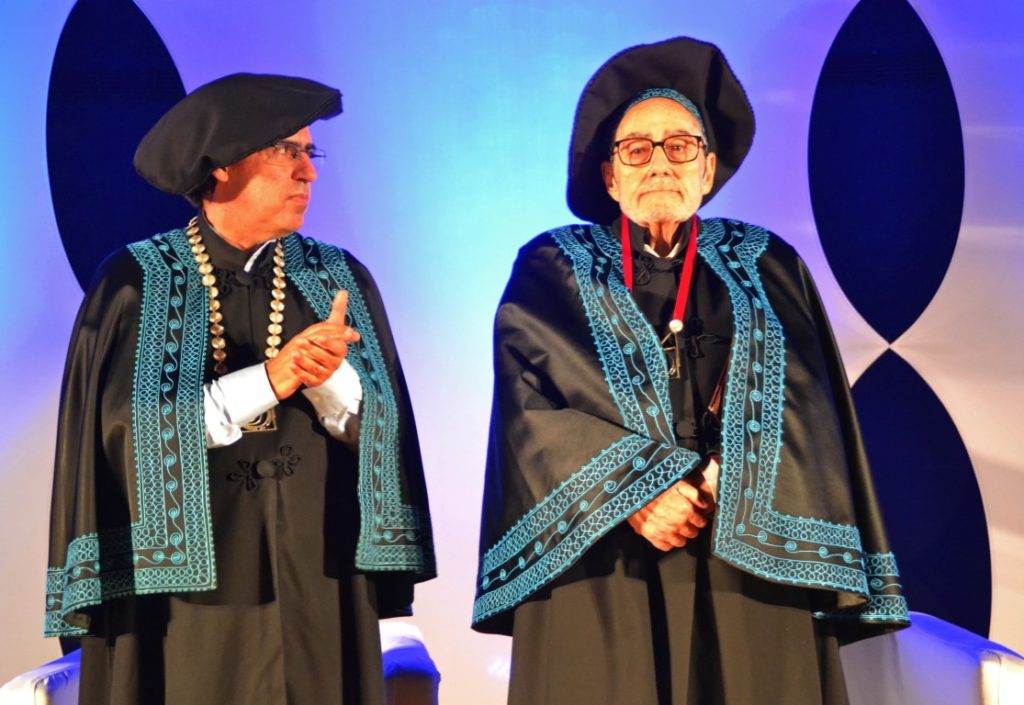
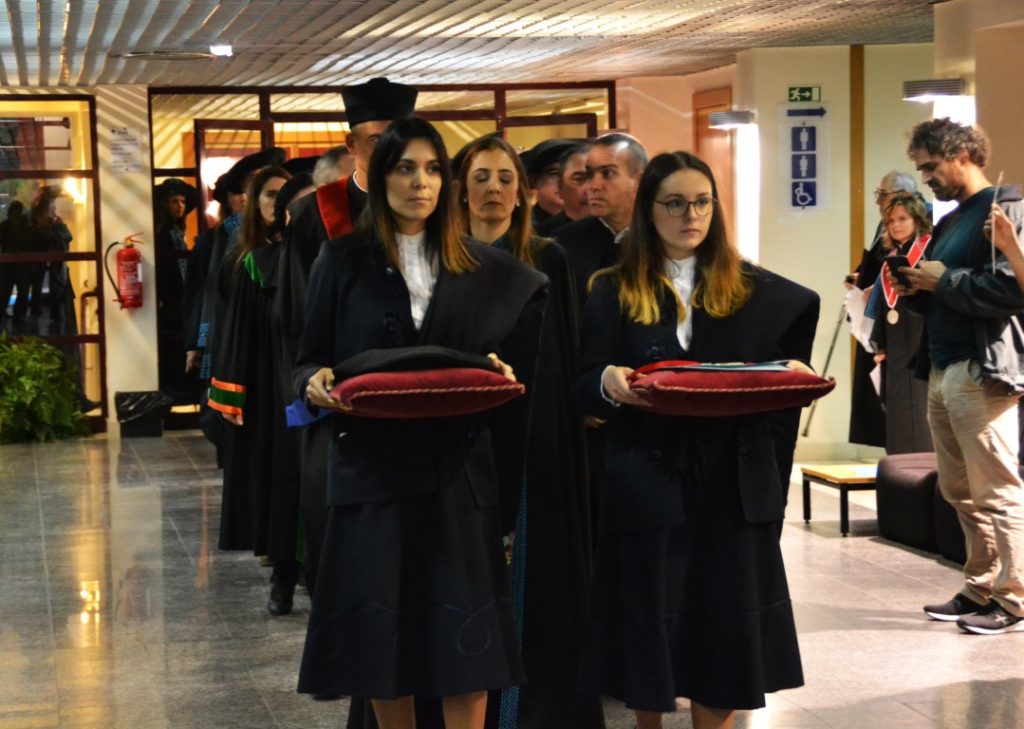
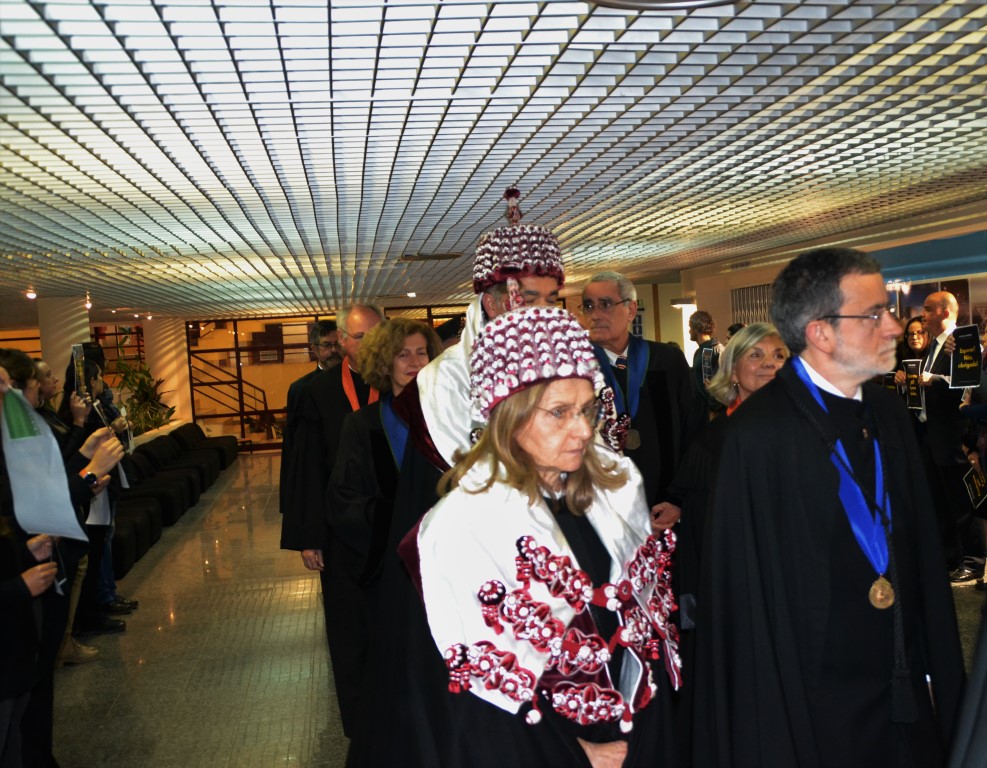
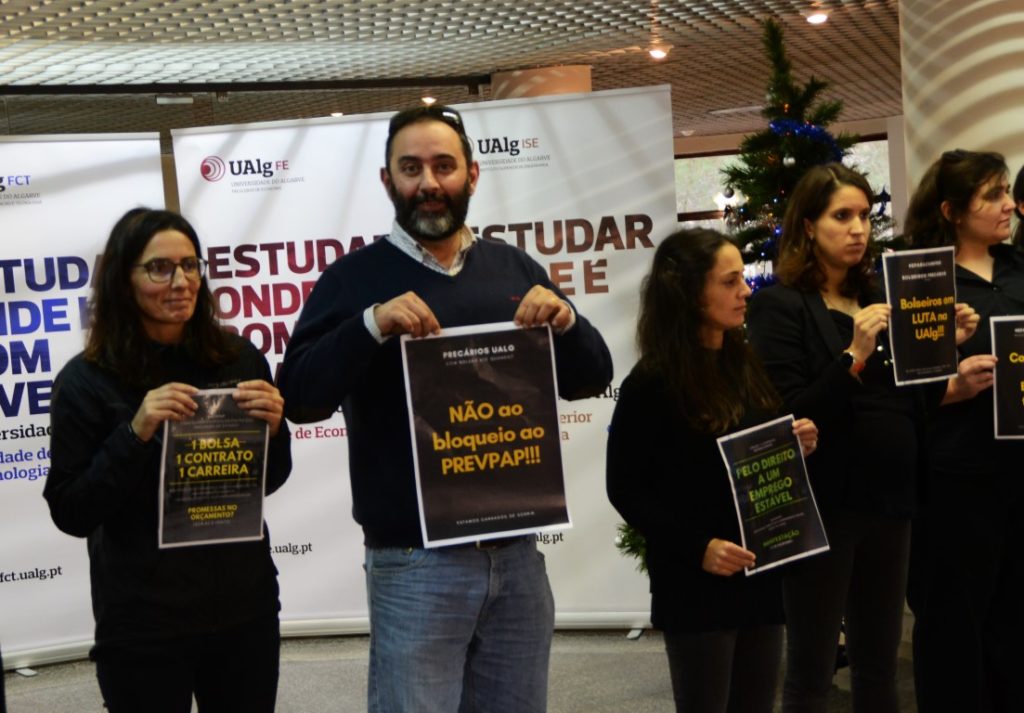
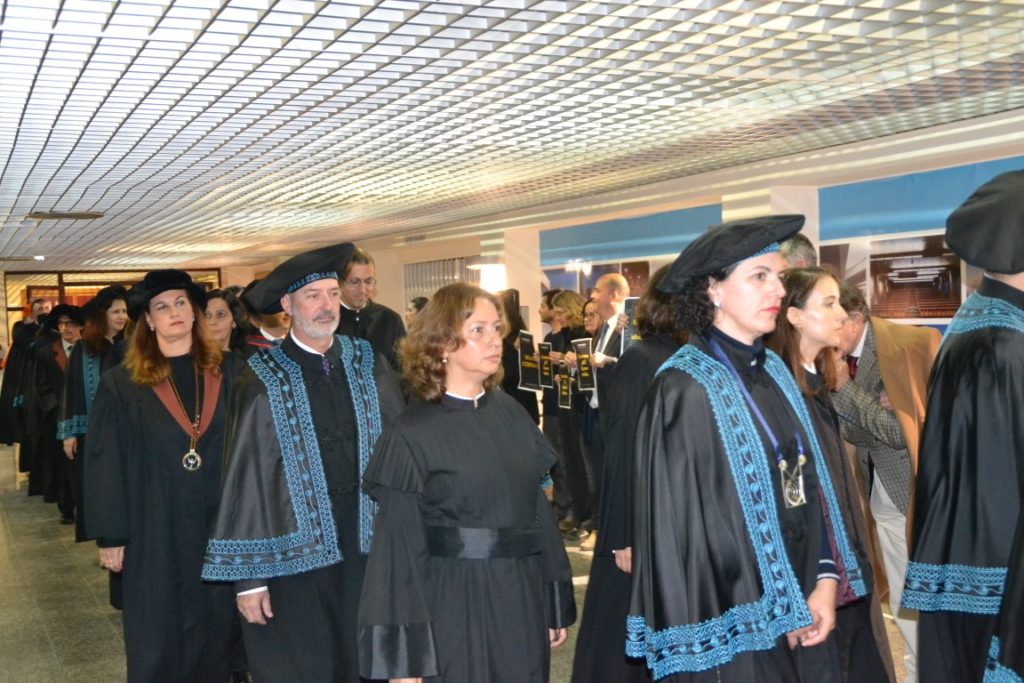
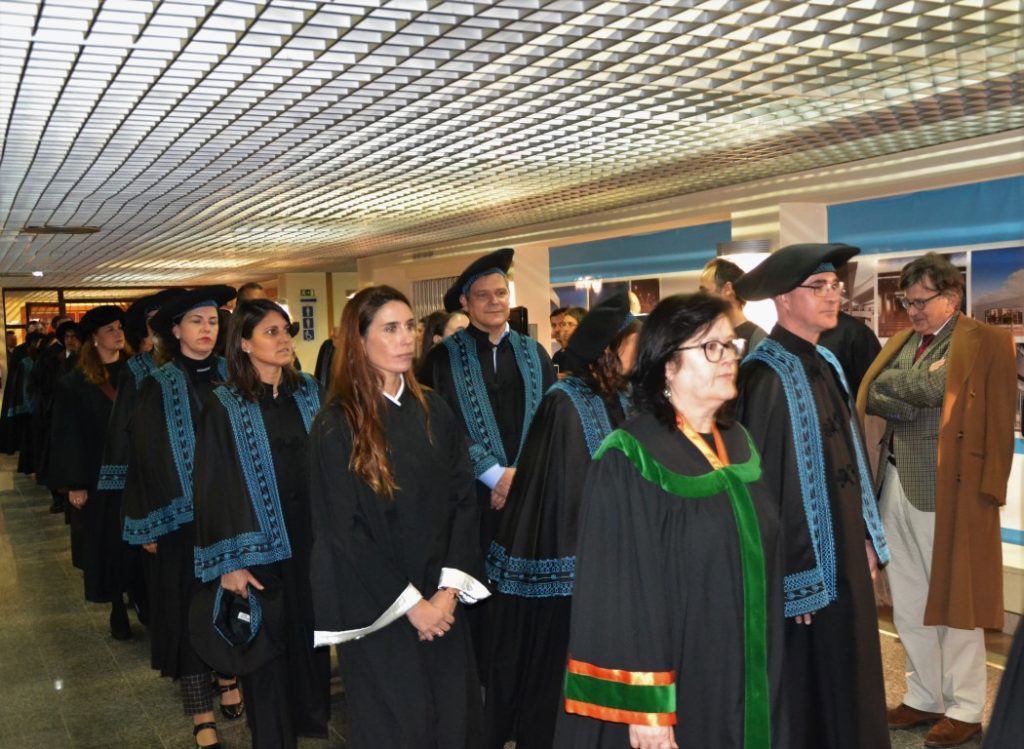
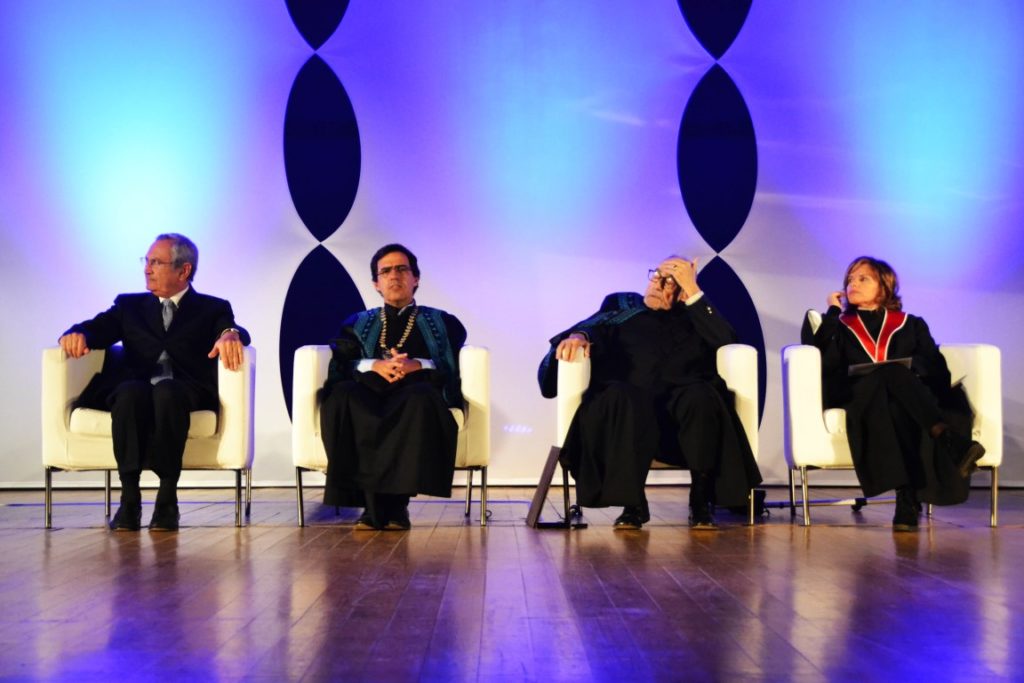
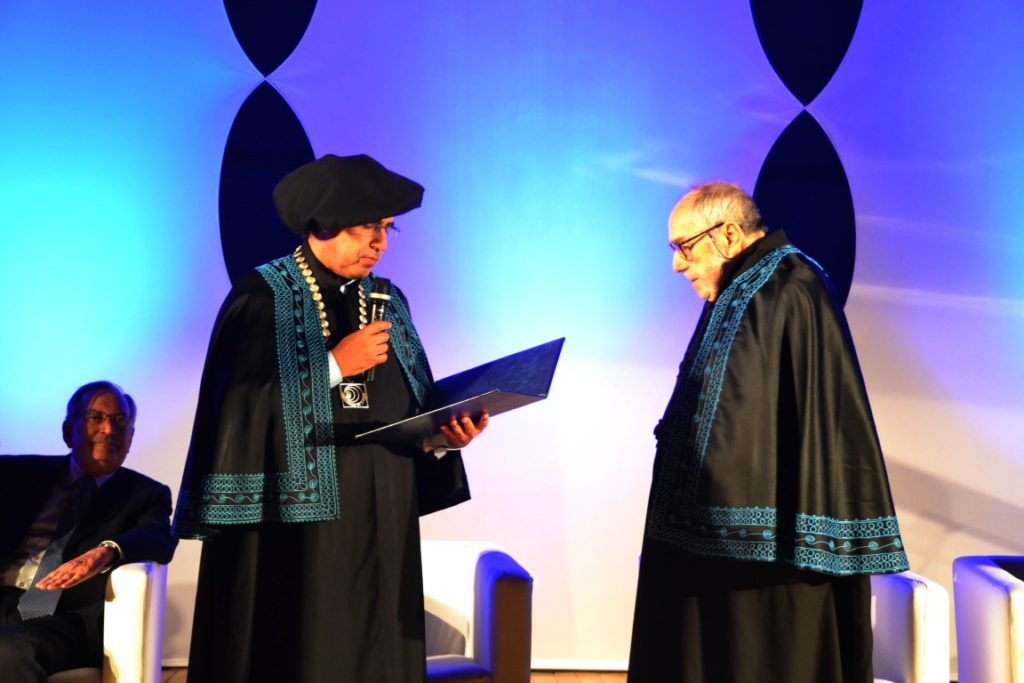
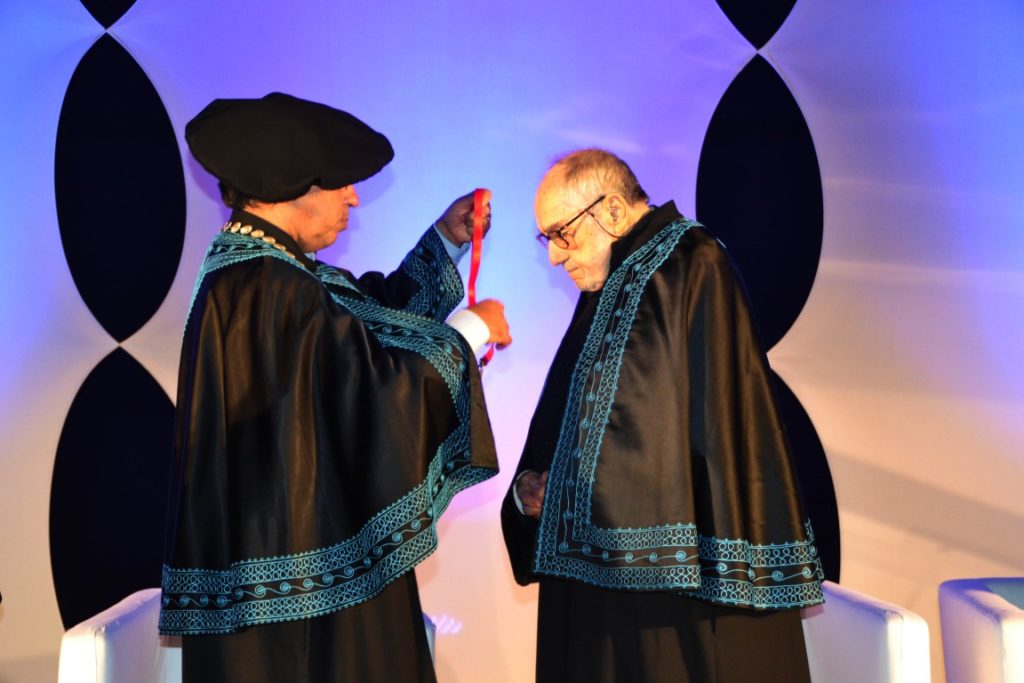
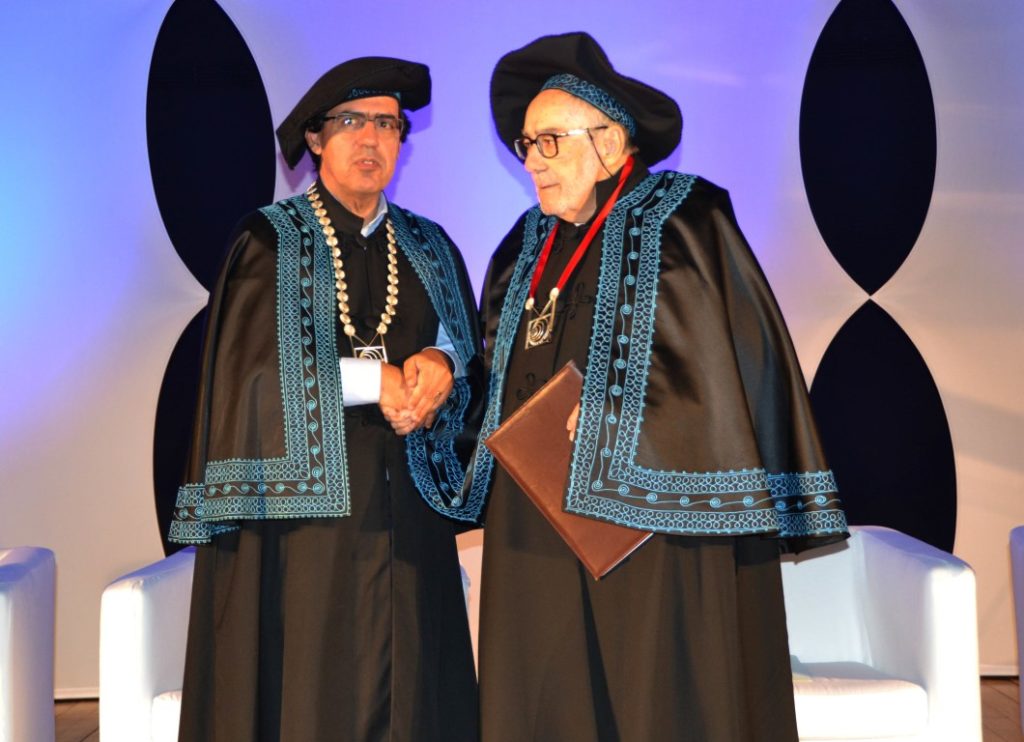
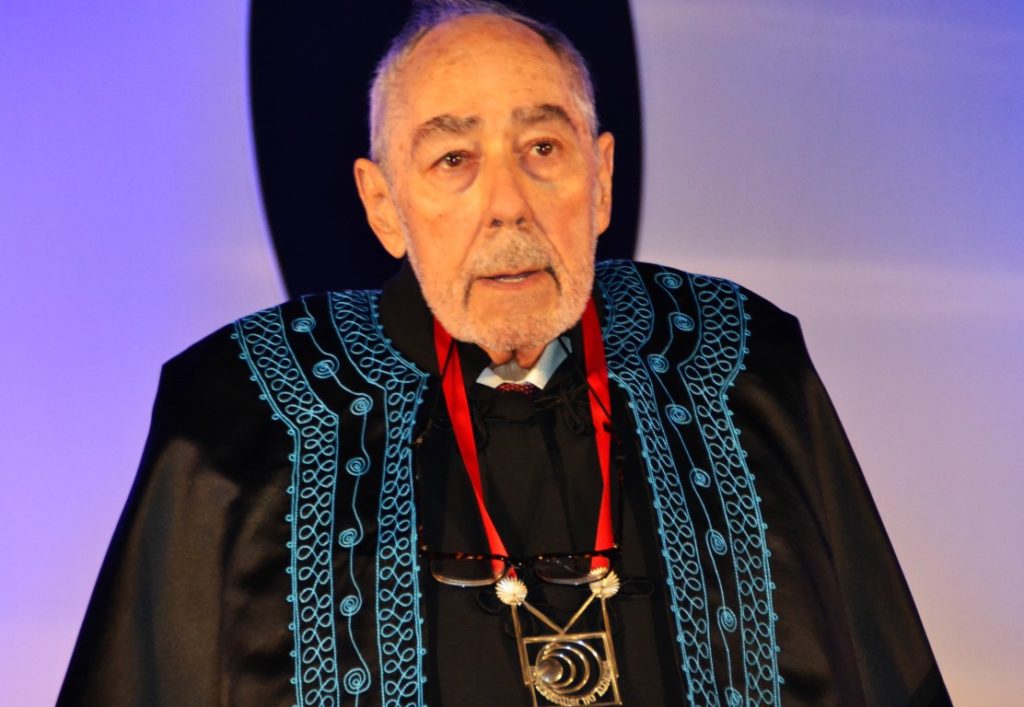
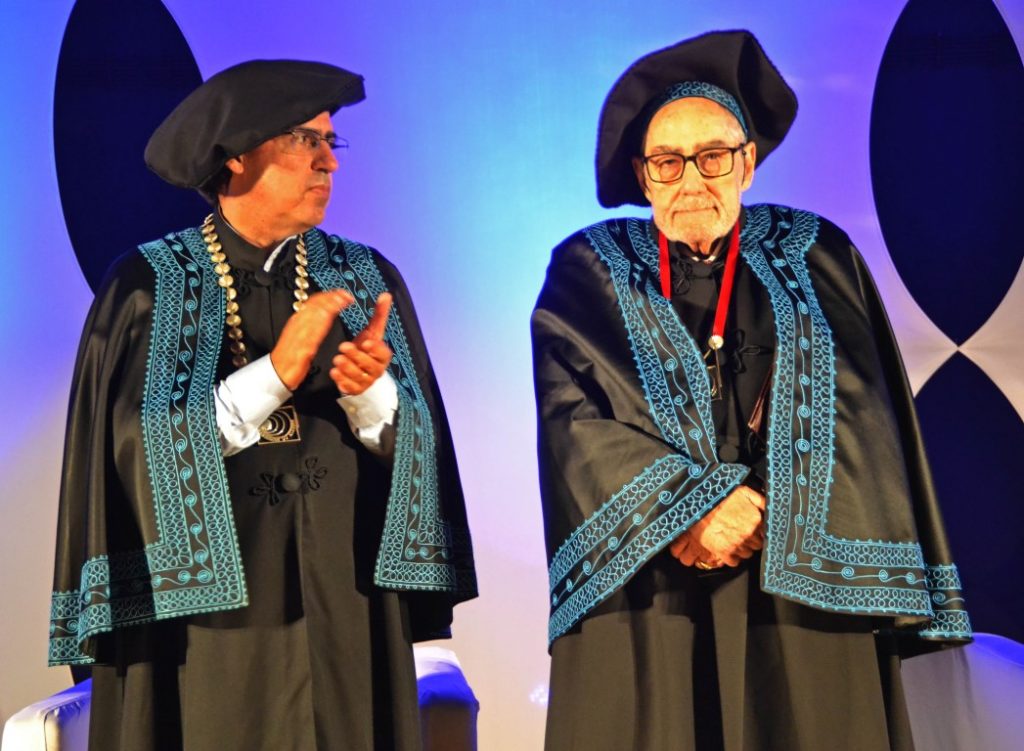
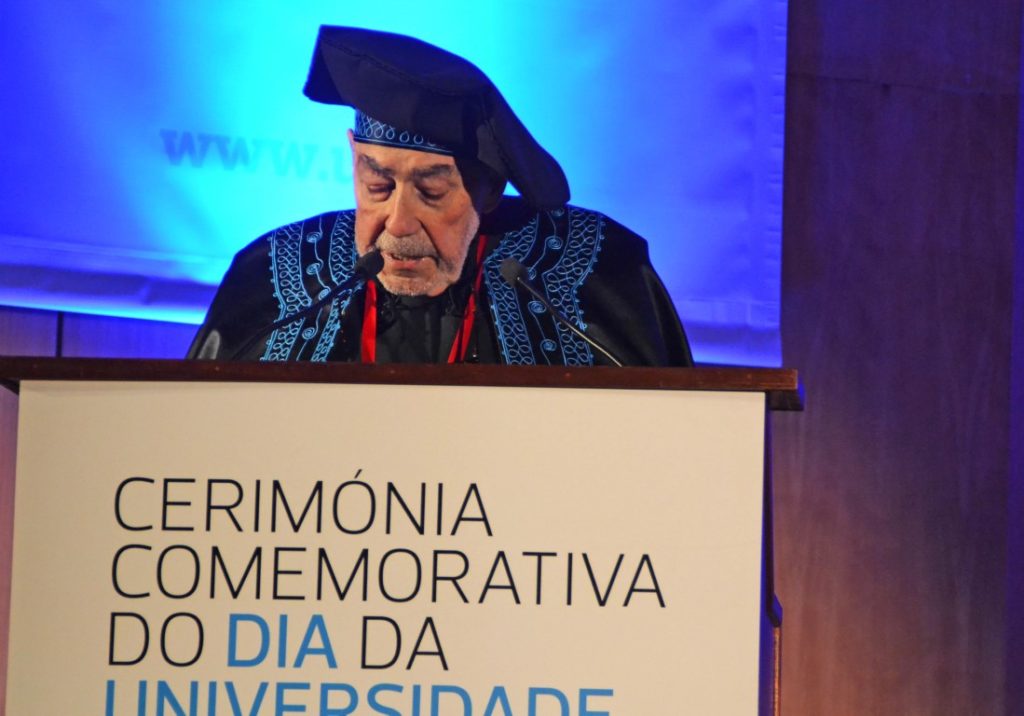
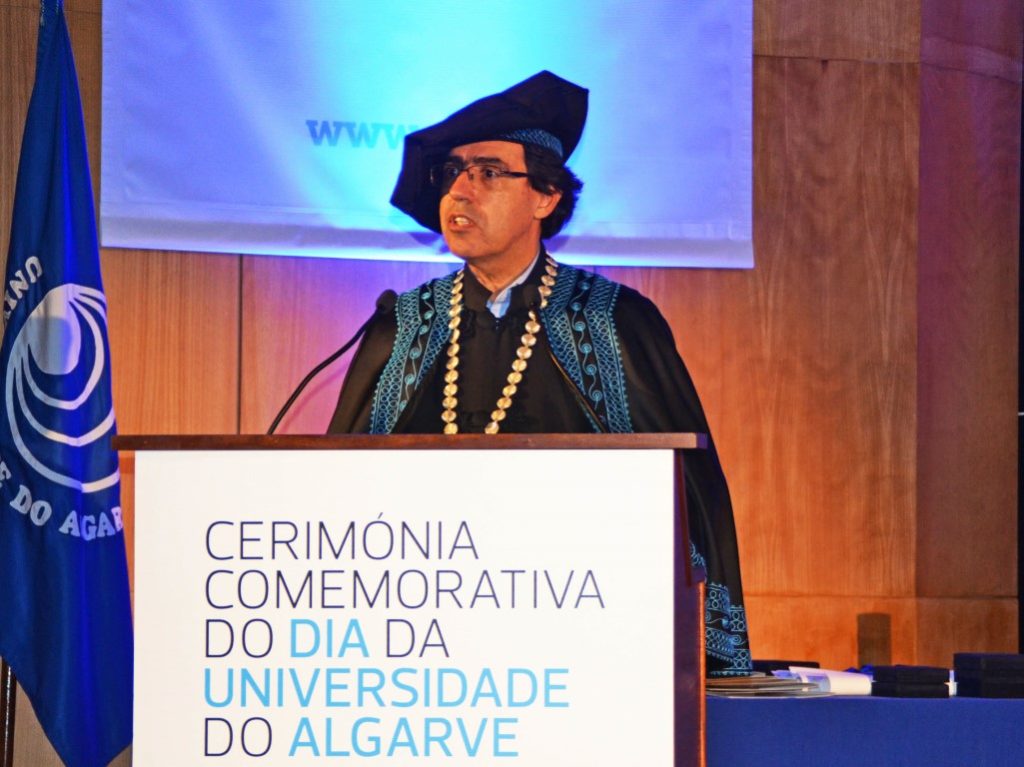
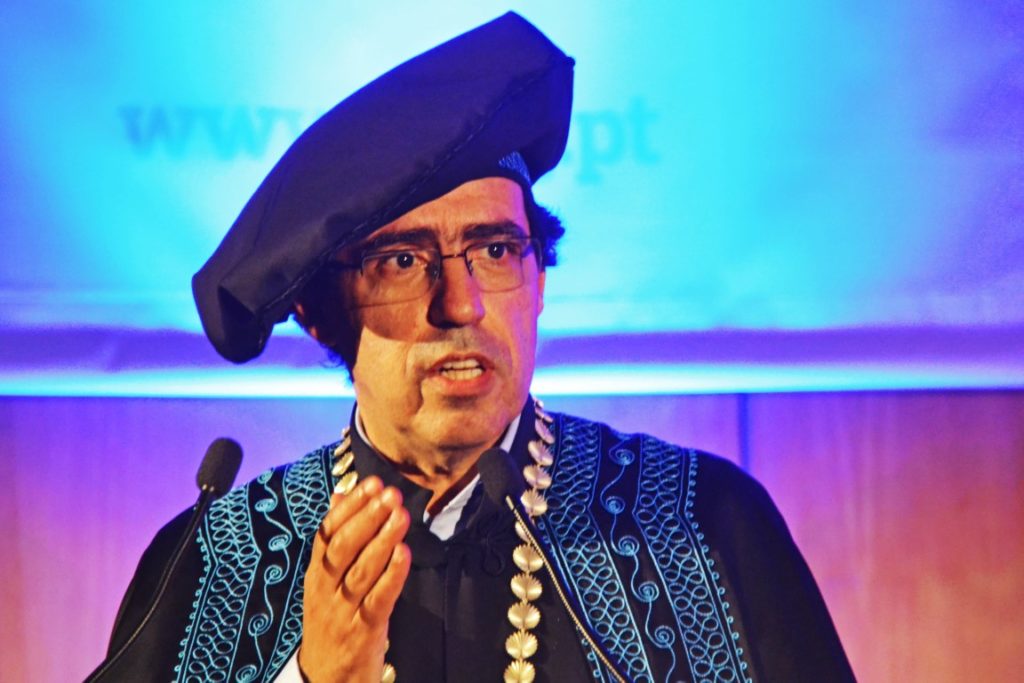
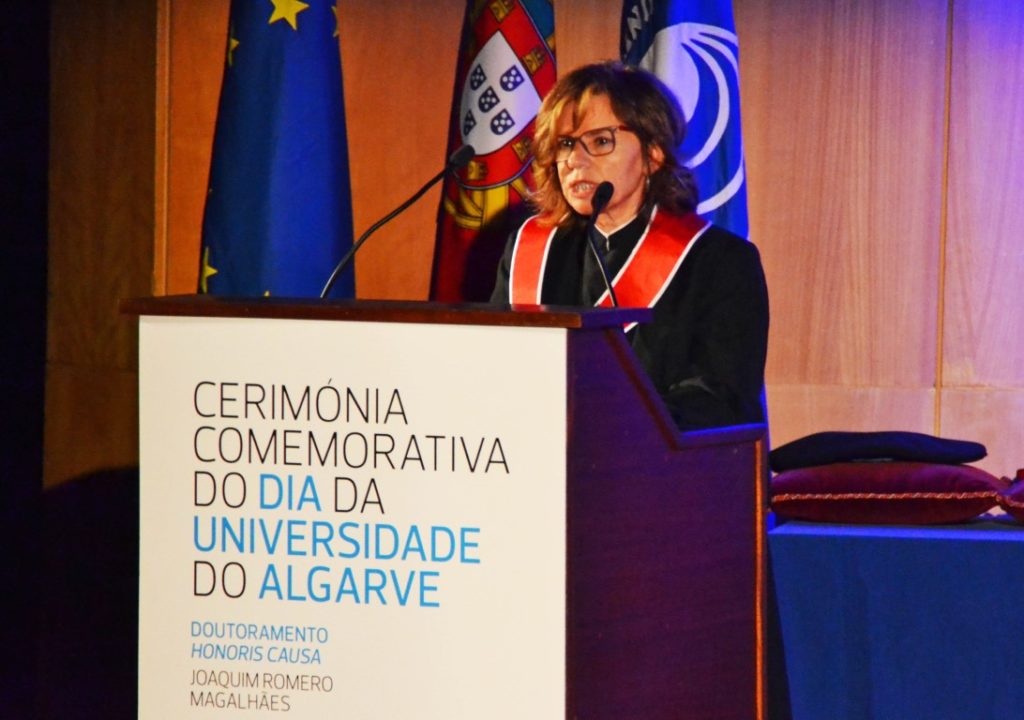
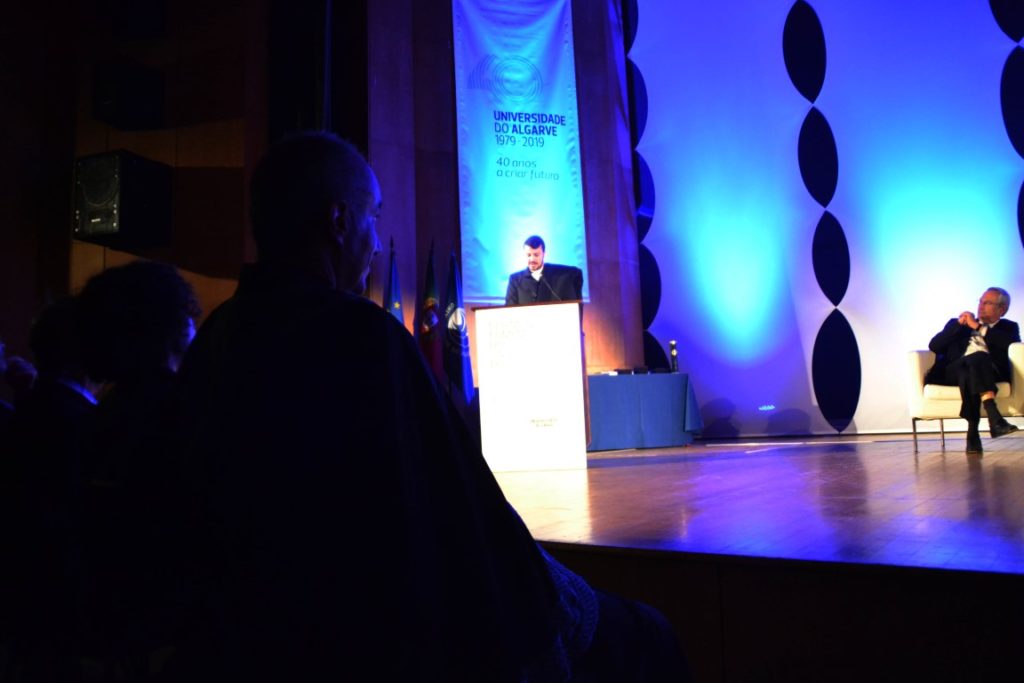
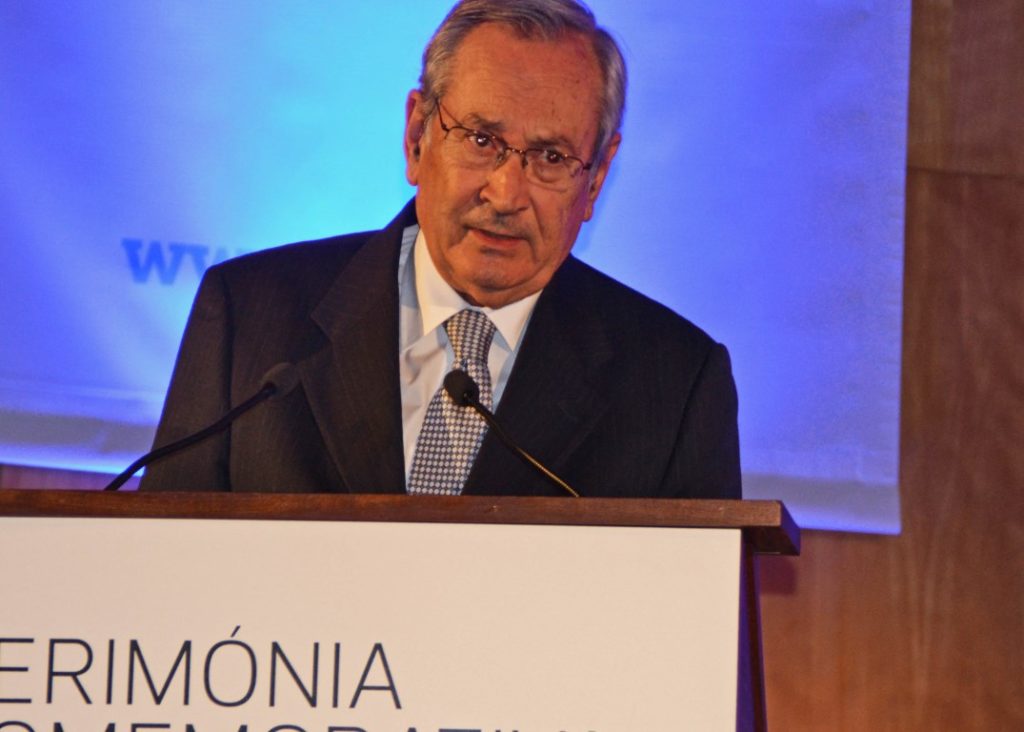
















Comments